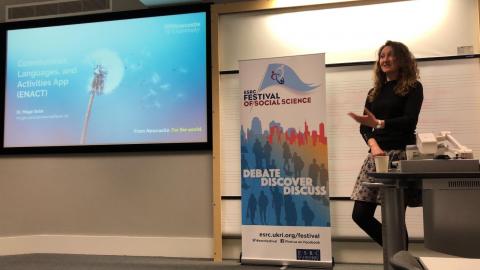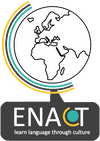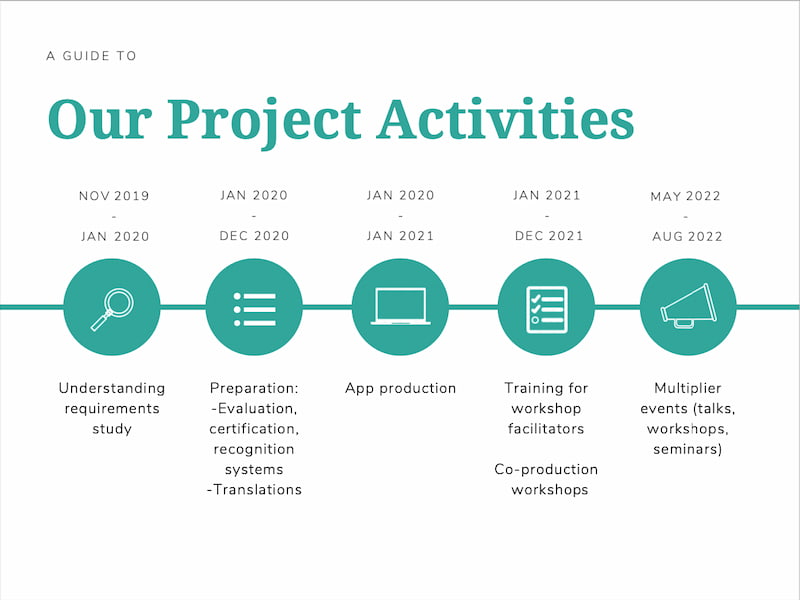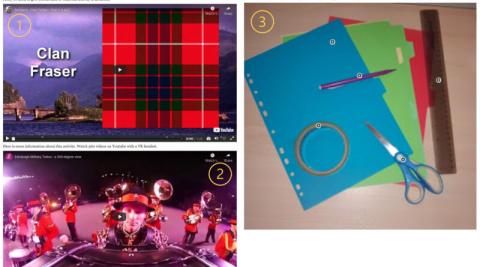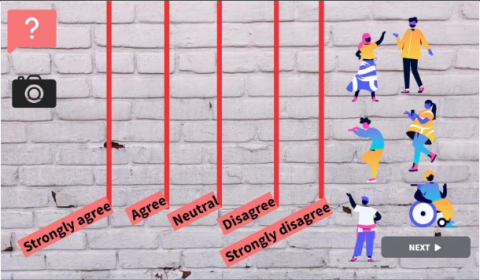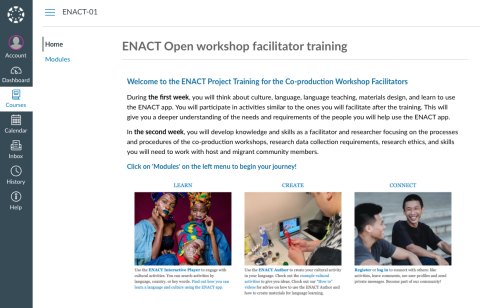This output involves the development of certification, recognition, and evaluation systems for the ENACT project including the following:
1. digital competences Download the ENACT Digital Skills self-assessment and certification system
2. knowledge of and/or attitudes towards other cultures, languages, and cultural activities
3. language learning gains
4. user evaluations of the web app (engagement, creation and online community interfaces)
5. participant engagement with the online community
6. Higher Education (HE) students' community involvement in their academic results
7. participant evaluations of the training events for co-production workshop facilitators
8. user evaluations of the project and the multiplier events
When developing these tools, procedures, and systems, we searched for existing tools already developed by previous EU projects, assessed their suitability to the current context, and adapted them to the current project where possible. However, where necessary, we created new tools, procedures, and systems.
All the systems developed and reported here are made freely available on the project website or on the reported URLs, and can be used by others interested in evaluating and certifying digital, linguistic, and cultural gains developed through face-to-face and online intergenerational and intercultural interaction. The recognition system which allows HE students to gain credit in their academic results was designed to allow flexibility to be adapted in other EU HE institutions. This will foster future student participation and support to build sustainable inclusive HE systems.
Published on 1 June 2022
How to cite: Satar, M., Seedhouse, P., Kharrufa, A., Dodds, C. B., Ganassin, S., Whelan, A., Sidorova, A., Spazheva, I., Dooly, M., Buitrago Peña, J., Akcan, S., Erçetin, G., Haznedar, B., Öztekin, E., Kotilainen, L., & Kurhila, S. (2022). Developing certification, recognition, and evaluation systems for the ENACT project. Retrieved from https://www.enacteuropa.com/?q=node/227 https://doi.org/10.13140/RG.2.2.16829.33761
Copyright (c) 2022 CC BY-NC-ND Satar, M., Seedhouse, P., Kharrufa, A., Dodds, C. B., Ganassin, S., Whelan, A., Sidorova, A., Spazheva, I., Dooly, M., Buitrago Peña, J., Akcan, S., Erçetin, G., Haznedar, B., Öztekin, E., Kotilainen, L., & Kurhila, S.
